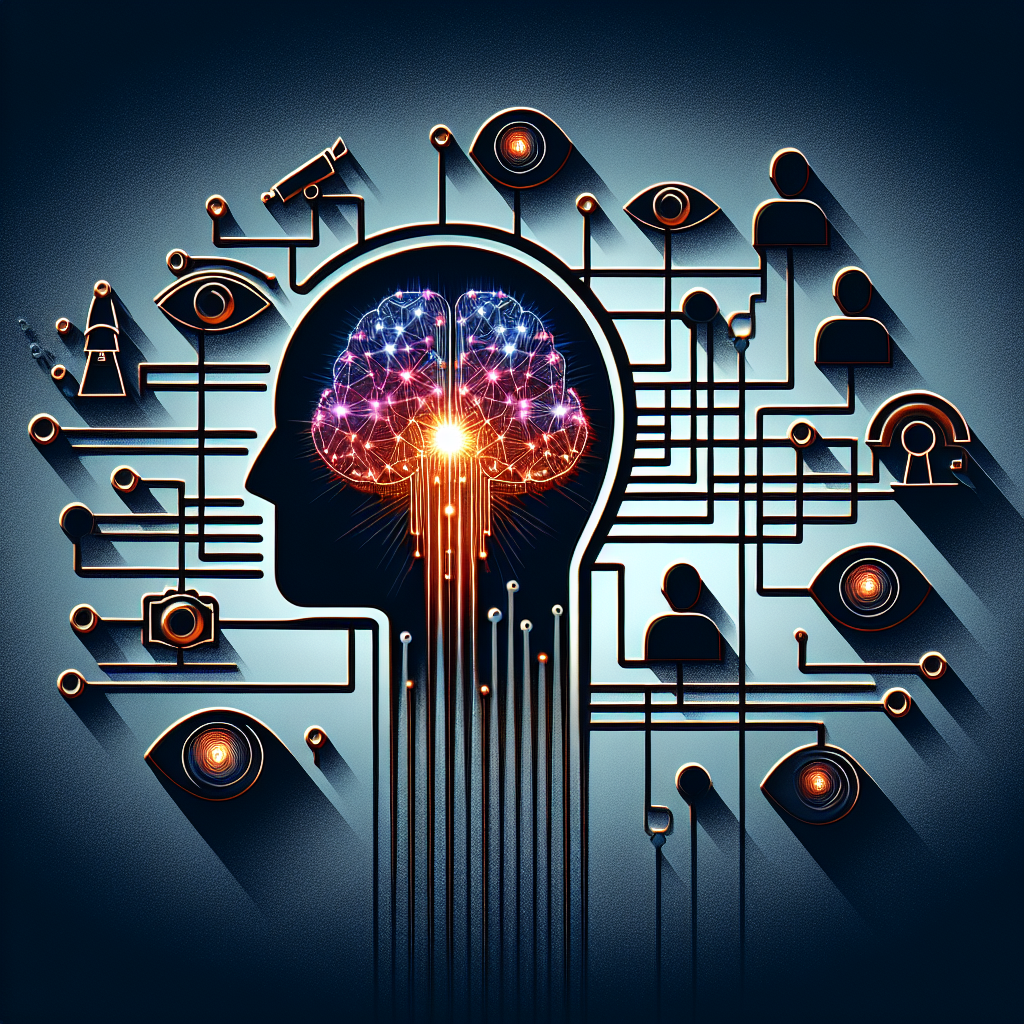In recent years, the use of artificial intelligence (AI) in predictive analytics has become increasingly common. This technology has the ability to analyze large amounts of data to predict future outcomes and trends, making it a valuable tool for businesses in various industries. However, with the benefits of AI come privacy risks that need to be carefully considered and managed.
One of the main privacy risks associated with AI in predictive analytics is the potential for data breaches. As AI systems rely on vast amounts of data to make accurate predictions, there is a significant amount of personal information that is stored and processed. If this data falls into the wrong hands, it can be used for malicious purposes, such as identity theft or fraud.
Another privacy risk is the potential for bias in AI algorithms. These algorithms are trained on historical data, which can contain biases that are reflected in the predictions made by the AI system. For example, if a predictive analytics system is used to make hiring decisions, it may inadvertently discriminate against certain groups based on historical hiring practices. This can result in unfair treatment and discrimination, which can have serious consequences for individuals and organizations.
Furthermore, the use of AI in predictive analytics can also raise concerns about transparency and accountability. AI algorithms are often complex and difficult to understand, making it challenging to determine how decisions are being made. This lack of transparency can lead to distrust in AI systems and raise questions about their accuracy and reliability.
To address these privacy risks, organizations using AI in predictive analytics must take steps to protect the data they collect and ensure that their algorithms are fair and transparent. This includes implementing robust security measures to prevent data breaches, conducting regular audits of AI systems to identify and address biases, and providing clear explanations of how decisions are made by AI algorithms.
In addition, organizations should also consider the ethical implications of using AI in predictive analytics. This includes ensuring that the data used is collected and used in a responsible manner, respecting the privacy rights of individuals, and being transparent about the use of AI technology.
Overall, while AI in predictive analytics offers many benefits, organizations must be vigilant in addressing the privacy risks associated with this technology. By implementing appropriate safeguards and ethical practices, organizations can harness the power of AI while protecting the privacy and rights of individuals.
FAQs:
1. What are some common examples of AI in predictive analytics?
– Some common examples of AI in predictive analytics include predictive maintenance in the manufacturing industry, customer churn prediction in the telecommunications industry, and fraud detection in the financial services industry.
2. How can organizations protect against data breaches when using AI in predictive analytics?
– Organizations can protect against data breaches by implementing robust security measures, such as encryption, access controls, and regular security audits. It is also important to limit access to sensitive data and ensure that data is stored securely.
3. How can organizations address bias in AI algorithms used in predictive analytics?
– Organizations can address bias in AI algorithms by conducting regular audits of their systems to identify and correct biases. This can involve retraining algorithms on more diverse and representative data sets, as well as implementing fairness metrics to evaluate the impact of decisions made by AI systems.
4. What ethical considerations should organizations keep in mind when using AI in predictive analytics?
– Organizations should consider ethical considerations such as privacy rights, transparency, and accountability when using AI in predictive analytics. It is important to be transparent about the use of AI technology and ensure that data is collected and used in a responsible manner.
5. How can organizations ensure that their use of AI in predictive analytics is ethical?
– Organizations can ensure that their use of AI in predictive analytics is ethical by implementing clear policies and guidelines for the collection and use of data, conducting regular audits of AI systems to identify and address biases, and providing clear explanations of how decisions are made by AI algorithms.

